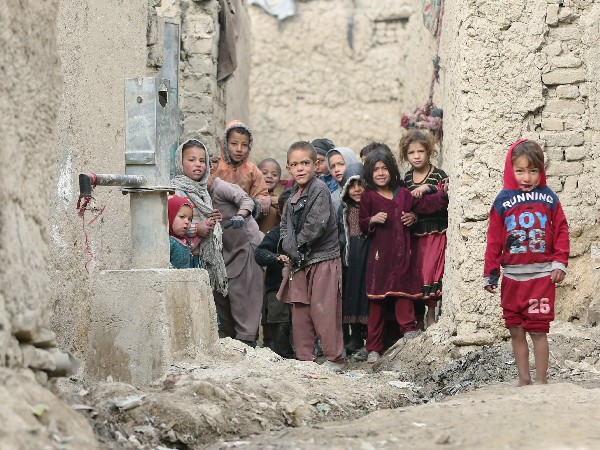

Lax implementation of laws and rules relating to children is said to have posed challenges in providing alternative care for children.
According to the provision of the management of alternative care as specified in the Rule 53 (1) of the Children’s Regulation, 2078 BS (2022), for children requiring alternative care, the respective local child rights committee will make arrangements for alternative care on the recommendation of the child welfare officer ensuring education, health, nutrition, protection and the highest welfare of the children.
The Act Relating to Children, 2018 has a provision that the each local level can formulate the procedure relating to the protection and promotion of child rights, set up a child fund, form a local child rights committee, and appoint a child welfare officer.
However, the challenges are that most of the local levels lack a child welfare officer, which has served as a setback in providing alternative care for children, said advocate Kapil Aryal.
According to latest data with the National Child Rights Council (NCRC), out of the total 753 local levels, child rights committees have been formed only in 240, and 276 have got child welfare officers. Similarly, 216 have got child funds, and 325 have formulated the procedure relating to the protection and promotion of child rights.
There are many forms of alternative cares for children. They are kinship care (relative from the side of father or mother of the child), foster care (family or person willing to provide care to the child), organisation that provides family-like care, and child care home.
Residential child care facility (child care home) is considered the last option for children. The UN Guidelines for the Alternative Care of Children (Resolution adopted by the General Assembly on 18 December, 2009) calls for preventing the need of alternative care for children, preventing family separation, promoting family reintegration, and the determination of the most appropriate form of care (promoting parental care, informal care, residential care).
But sadly, child care homes (CCHs) come first and foremost option for many children in Nepal, said Aryal, who is also a faculty member at the Kathmandu School of Law. Geographical difficulties and poverty have played a major role in dumping children in CCHs, he viewed. In many cases, there are a tendency of parents (impoverished in particular) getting away from their children so they can work freely to make a living, which leads to children ending up in CCHs and at other risky sector, according to him. Being deprived of facilities in remote areas is another factor driving children to city areas and ultimately to CCHs, he added.
According to a survey carried out by the CeLRRd as part of the ‘Togetherness for the Protection’, out of 77 CCHs surveyed, a majority (67 CCHs) were based in popular tourist areas like in Kathmandu, Lalitpur, Bhaktapur, and Chitwan etc, and many of the children in them were from remote and deprived districts. The survey was conducted in Bagmati, Gandaki and Karnali Provinces.
He was presenting a report on the legal provisions and existing challenges in the alternative care of children at a consultation relating to the legal provisions in the alternative care of children organised in Kathmandu by the NCRC. The programme also saw the review of ‘Togetherness for the Protection’, a three-year project relating to the trafficking of children and their consequential risks, launched with the NCRC and ECAPT Luxembourg as a strategic partner, and the CeLRRd (Centre for Legal Research and Resource Development) and the Shakti Samuha as an implementing partner.
In view of the proper management of alternative care for children, he called for removing inconsistencies in laws, the formation of the child rights committees and appointment of child welfare officers in all local levels, keeping record of the children requiring alternative care, the listing of family and persons wanting to provide alternative care to the children, the regular monitoring of CCHs and children in them, taking action against unregistered CCHs and developing assistance system for the poor family of the children.
On the effectiveness of the ‘togetherness for the protection’ project, the number of CCHs in 45 districts has now reduced to 417 from 489 when the CeLRRd carried out a survey in 2078 BS, according to the report presented by Aryal. Likewise, the number of children in them has also declined to 10,905 from 11,350. According to the NCRC, it has so far received 325 applications requiring a license for running a child care home.
Similarly at the programme, Shakti Samuha chair Charimaya Tamang pointed out child trafficking as a bigger challenge of the state. So, the proper monitoring of CCHs are required, she said, stressing the need for cooperation and collaboration among all concerned authorities including the government at all three levels, the NCRC and other related organisations against child trafficking.
The NCRC Vice Chairperson Bam Bahadur Baniya sought the pledge of all 753 local levels in the implementation of child rights. He also said the child care homes operating without meeting the set minimum standards would be scrapped.
Also, Basu Phuyal, the representative of Kageshwori Manohara Municipality, brought up the matter of the consequences of the post family reintegration of children. Referring that in many cases children who have reintegrated with the family have been found returning to the child care home or ending up at the risky sector, he called for the creation of a strong mechanism to address such problems.
—